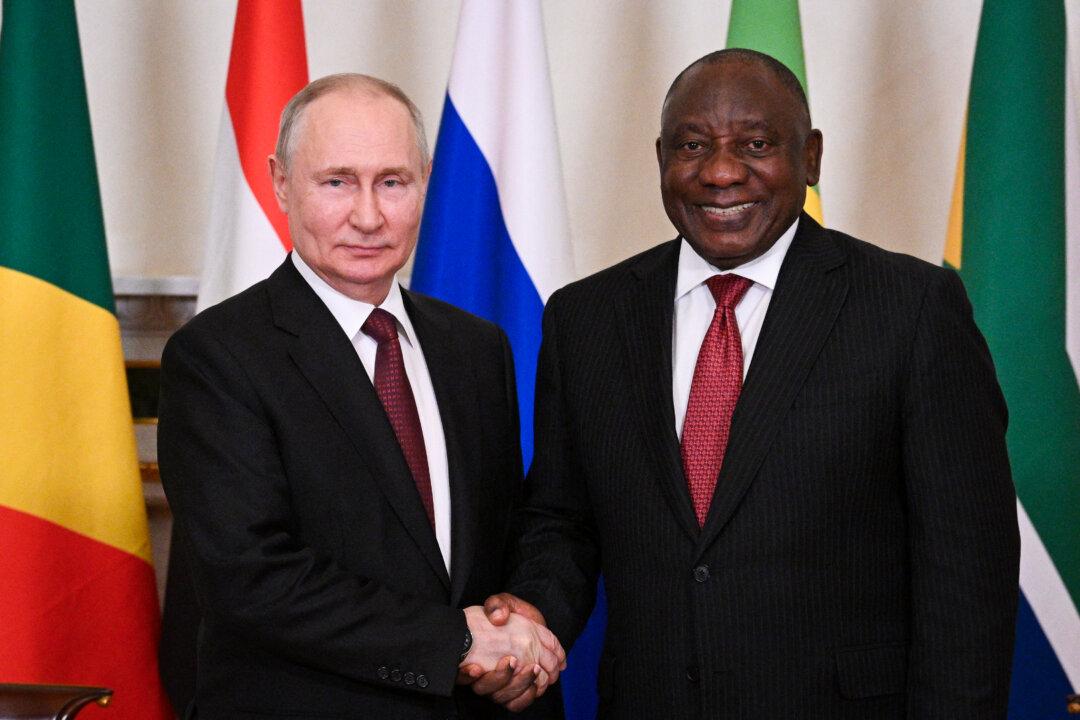JOHANNESBURG—Russian President Vladimir Putin has formed a “global alliance,” along with key allies including China, Cuba, North Korea, Syria, South Africa, and Zimbabwe, with the goal of fighting “Western imperialism.”
At a weekend gathering in Moscow, Dmitriy Medvedev, deputy chairman of Russia’s Security Council, announced the establishment of the “Forum of Supporters of the Struggle Against Modern Practices of Neocolonialism.”





